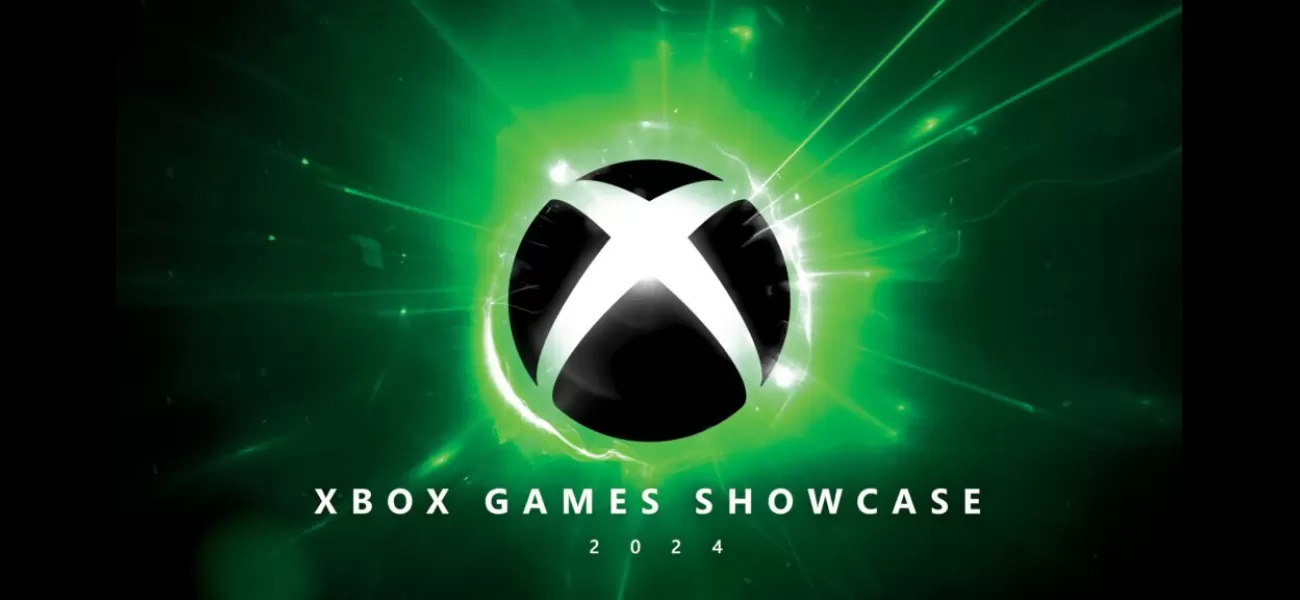Microsoft's Xbox showcase outshines PS5, but the company is sidestepping important problems.
GameCentral covers the major news from the Xbox Games Showcase and highlights the topics that Microsoft didn't address.
June 9th 2024.

Once again, the not-E3 period has come and gone, bringing with it a slew of gaming announcements and updates. While many were looking forward to the excitement and surprises that usually come with this time of year, things were a bit different this time around. Despite some promising new games being showcased, the overall reception was a bit lackluster.
The PlayStation State of Play left much to be desired, with only two first-party games being featured. Sumer Game Fest, while fine, also didn't have any major standout moments. And just like last year, the Xbox Games Showcase stole the show. Sony did have the impressive Astro Bot to show, but Xbox managed to outdo themselves from last year. However, many of the big reveals had already been leaked beforehand, such as Doom: The Dark Ages and Gears of War 6 (now known as Gears of War: E-Day).
Most of the games were shown through pre-rendered trailers or in-game assets that may not have represented actual gameplay. For example, the Indiana Jones segment was visually stunning but didn't showcase much player interaction. This is a common trend in modern previews, as seen with Microsoft's presentations for State of Decay 3 and Starfield DLC Shattered Space. Despite these games being known for their technical issues, they looked impressive in their presentations.
Xbox did a great job with their showcase, featuring a good mix of first-party and third-party titles. Unique games like South of Midnight, with its stop motion cut scenes, were shown alongside big franchises like Assassin's Creed and Metal Gear Solid. The highly-anticipated Fable received a new trailer with more gameplay and a confirmed release date of 2025. But perhaps the most interesting reveal was Perfect Dark, with an extensive gameplay demo. However, it focused more on the use of gadgets and less on shooting, a departure from its predecessor GoldenEye 007.
One surprise announcement was Life is Strange: Double Exposure, which featured protagonist Max Caulfield. The gameplay mechanics of parallel timelines sounded intriguing, and the game is set to release on October 29. The only disappointment from the first-party lineup was Obsidian's Avowed, which still doesn't have a release date and appeared to have a lower budget compared to other games. This raises questions about Microsoft's plans for the game and whether they are actively promoting it.
Last year, Microsoft ended their showcase with a 30-minute look at Starfield, which received mixed reactions when the actual game was released. This year, they focused on the known quantity of Call of Duty: Black Ops 6, ensuring that the final product would live up to the hype. While Xbox executives did make brief appearances, Xbox boss Phil Spencer only introduced the event and Xbox president Sarah Bond made a short announcement about the all-digital Xbox Series X, hinting at future hardware.
Overall, the showcase was a success for Xbox, but it also avoided addressing some difficult issues. The games all looked impressive, but Microsoft made no mention of the current state of the industry or their plans for multi-platform releases. It was also interesting to note that they didn't list all the formats for these games, making it appear as though they were Xbox console exclusives. This even included one of their own first-party titles, Doom: The Dark Ages, which initially didn't list the PlayStation 5 but was quietly added later.
There are still rumors circulating about Microsoft's plans for multi-platform releases, and it's unclear if they are keeping it a secret or are still deciding. They wanted to showcase the competency and desirability of the Xbox, but there was no mention of the current state of the industry or their plans for it. While it was a more inspiring showcase compared to PlayStation's, Microsoft will eventually have to address the rising development costs and declining console sales. But for now, that discussion will have to wait.
The PlayStation State of Play left much to be desired, with only two first-party games being featured. Sumer Game Fest, while fine, also didn't have any major standout moments. And just like last year, the Xbox Games Showcase stole the show. Sony did have the impressive Astro Bot to show, but Xbox managed to outdo themselves from last year. However, many of the big reveals had already been leaked beforehand, such as Doom: The Dark Ages and Gears of War 6 (now known as Gears of War: E-Day).
Most of the games were shown through pre-rendered trailers or in-game assets that may not have represented actual gameplay. For example, the Indiana Jones segment was visually stunning but didn't showcase much player interaction. This is a common trend in modern previews, as seen with Microsoft's presentations for State of Decay 3 and Starfield DLC Shattered Space. Despite these games being known for their technical issues, they looked impressive in their presentations.
Xbox did a great job with their showcase, featuring a good mix of first-party and third-party titles. Unique games like South of Midnight, with its stop motion cut scenes, were shown alongside big franchises like Assassin's Creed and Metal Gear Solid. The highly-anticipated Fable received a new trailer with more gameplay and a confirmed release date of 2025. But perhaps the most interesting reveal was Perfect Dark, with an extensive gameplay demo. However, it focused more on the use of gadgets and less on shooting, a departure from its predecessor GoldenEye 007.
One surprise announcement was Life is Strange: Double Exposure, which featured protagonist Max Caulfield. The gameplay mechanics of parallel timelines sounded intriguing, and the game is set to release on October 29. The only disappointment from the first-party lineup was Obsidian's Avowed, which still doesn't have a release date and appeared to have a lower budget compared to other games. This raises questions about Microsoft's plans for the game and whether they are actively promoting it.
Last year, Microsoft ended their showcase with a 30-minute look at Starfield, which received mixed reactions when the actual game was released. This year, they focused on the known quantity of Call of Duty: Black Ops 6, ensuring that the final product would live up to the hype. While Xbox executives did make brief appearances, Xbox boss Phil Spencer only introduced the event and Xbox president Sarah Bond made a short announcement about the all-digital Xbox Series X, hinting at future hardware.
Overall, the showcase was a success for Xbox, but it also avoided addressing some difficult issues. The games all looked impressive, but Microsoft made no mention of the current state of the industry or their plans for multi-platform releases. It was also interesting to note that they didn't list all the formats for these games, making it appear as though they were Xbox console exclusives. This even included one of their own first-party titles, Doom: The Dark Ages, which initially didn't list the PlayStation 5 but was quietly added later.
There are still rumors circulating about Microsoft's plans for multi-platform releases, and it's unclear if they are keeping it a secret or are still deciding. They wanted to showcase the competency and desirability of the Xbox, but there was no mention of the current state of the industry or their plans for it. While it was a more inspiring showcase compared to PlayStation's, Microsoft will eventually have to address the rising development costs and declining console sales. But for now, that discussion will have to wait.
[This article has been trending online recently and has been generated with AI. Your feed is customized.]
[Generative AI is experimental.]
0
0
Submit Comment





